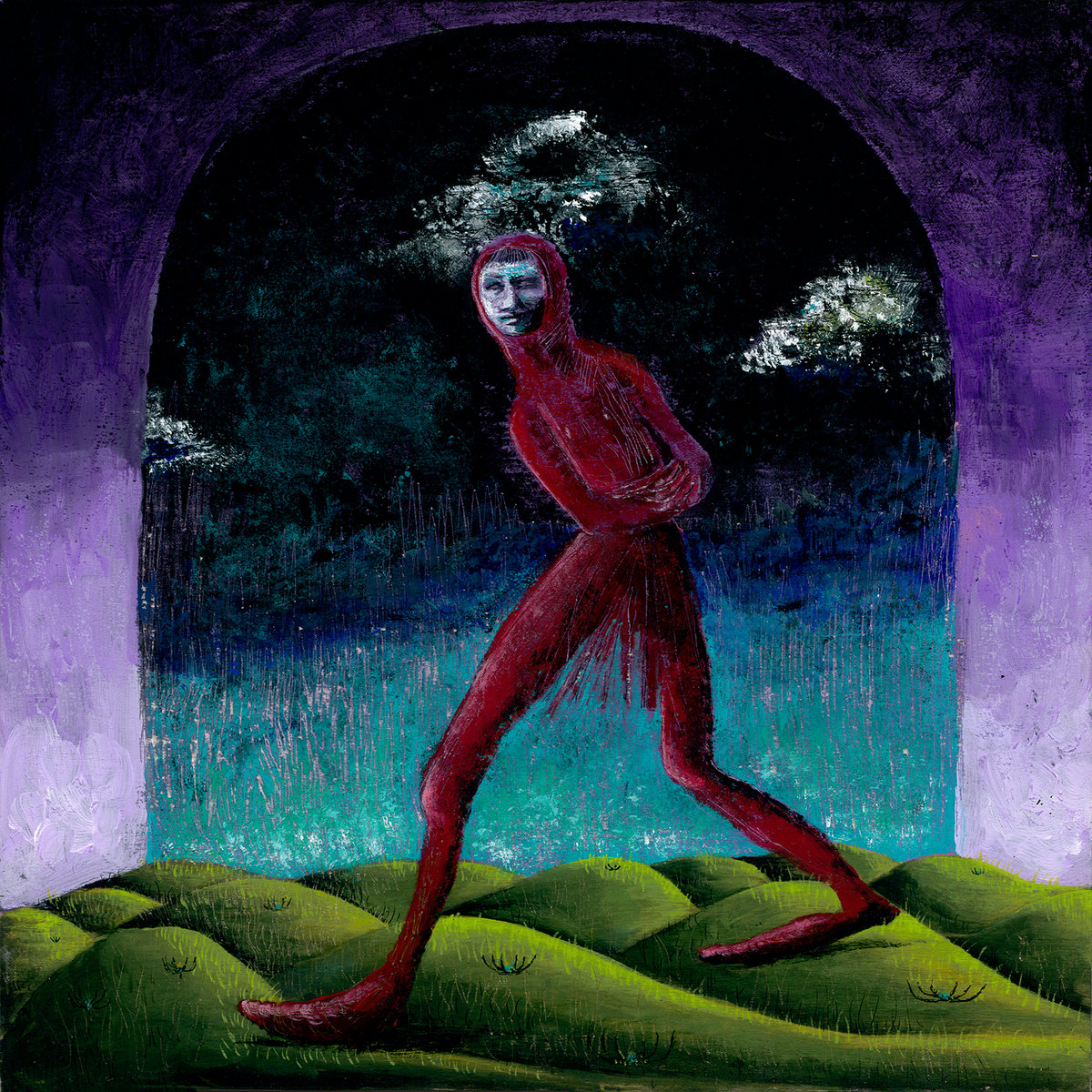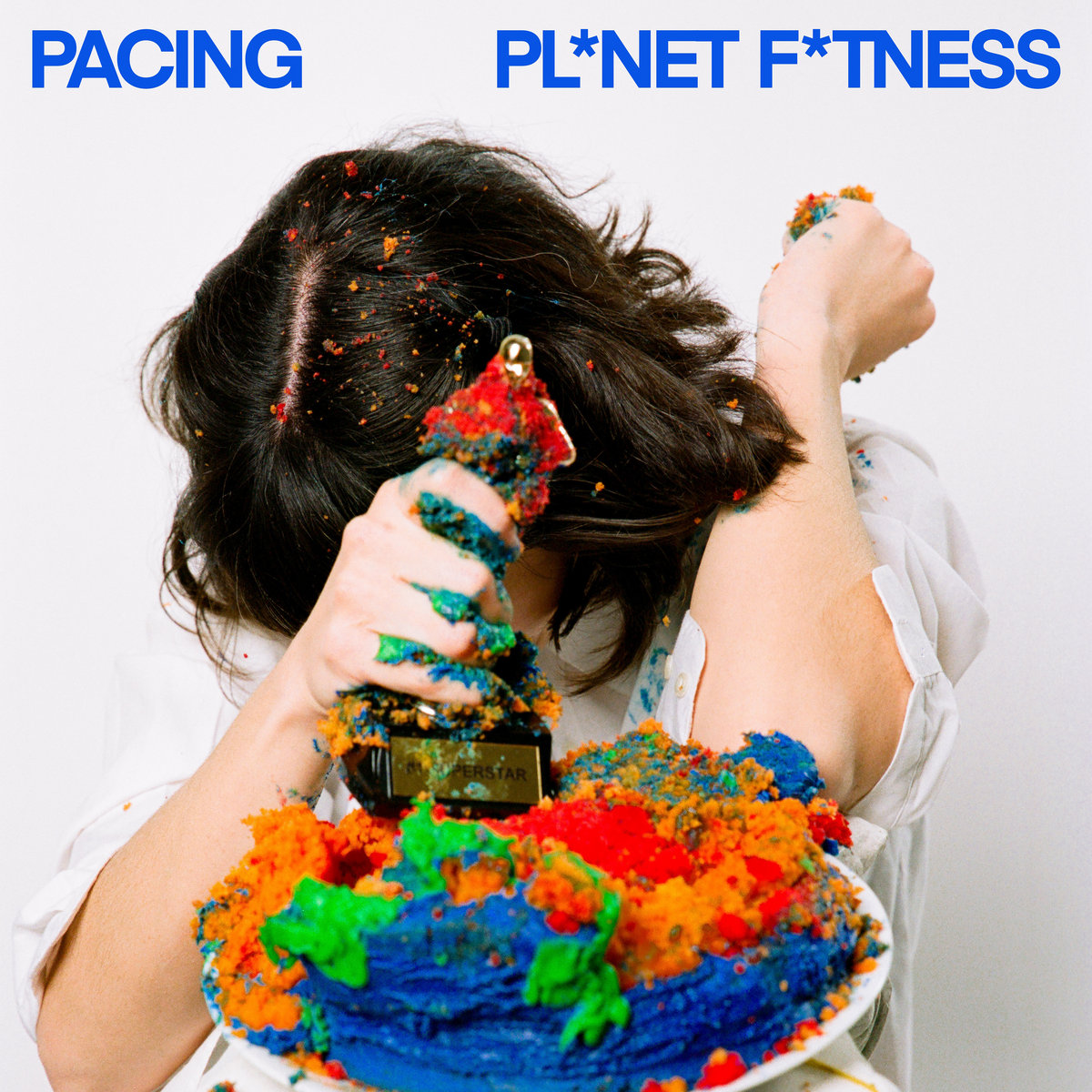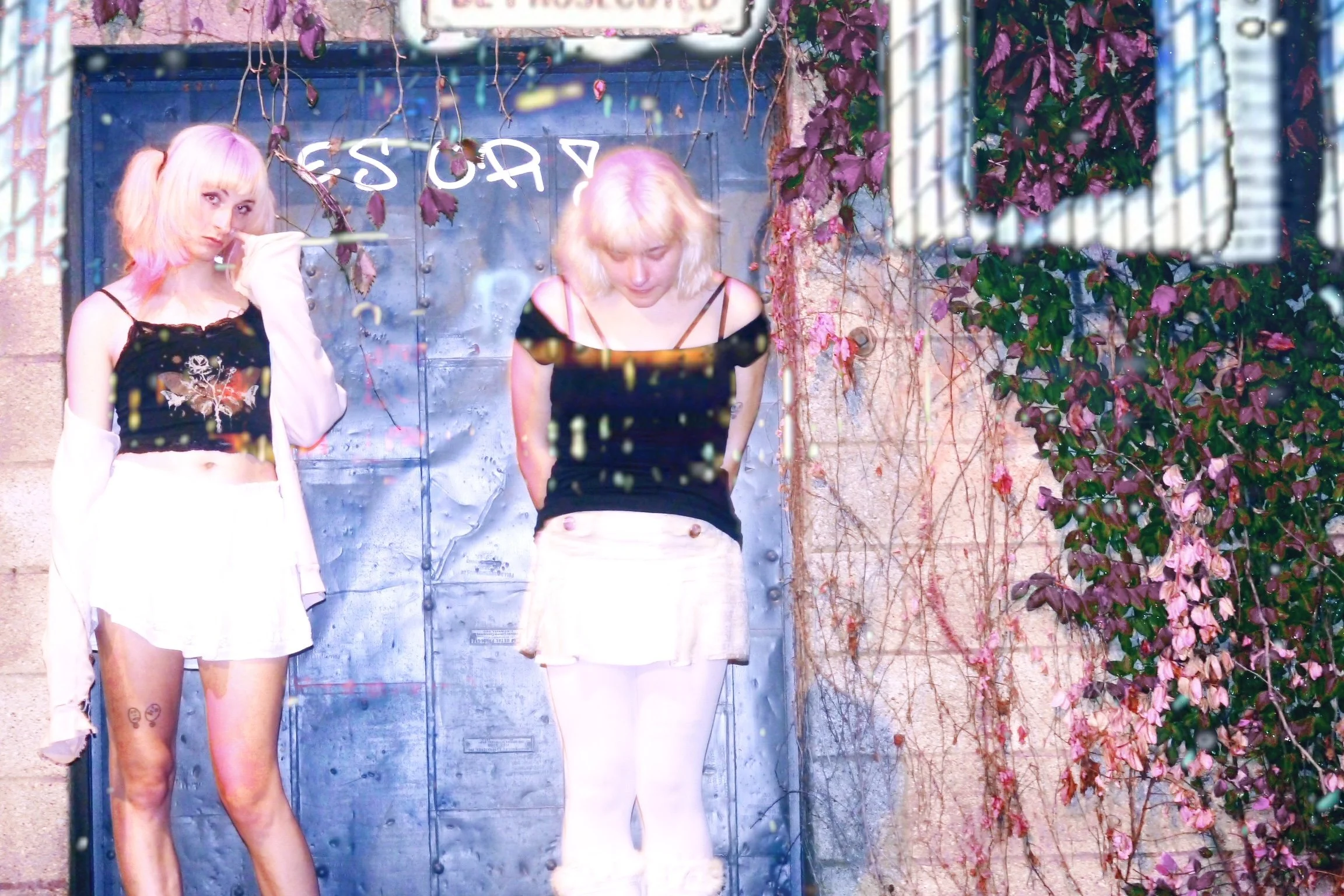Pile – Sunshine and Balance Beams | Album Review
/Sooper Records
Content Warning: This article discusses religious trauma, sexual abuse, and cults.
I dug my fists into my thighs as my eyes stung with tears. I was once again the center of attention in our tiny church, congregants looking askance at me as one of them muttered, “Women should be seen and not heard.” I knew he wanted me to hear, wanted me to cry. I had spoken up during the sermon, feeling brave enough to answer a question posed to the audience. It was not the first time I had done so, nor was it the first time I had received frowns.
But it felt different this time.
From then on, I was silent. I rarely spoke to anyone in church after that, preferring to stand quietly in groups, shoulder blades pressed against the cool safety of the sepulchral white walls. I began to dress in longer, baggier clothes, willing myself to disappear as I navigated each week in what I would later understand to be a religious cult. I was suffocating, controlled by viciously patriarchal leadership. This was unfortunately nothing new to me, having been the victim of sexual abuse by church leadership when I was seven and subjected to abusive power dynamics, bullying, and exclusion in the name of religion throughout the rest of my youth.
My family left the cult when I was freshly eighteen. As horrible as my existence within it was, it was also all I knew - so my world crumbled to dust as I frantically grasped with trembling hands to take what I could from the past several years. Though there was little to save, I was able to heal and rebuild. Doing so has taken well over a decade, and truthfully, my healing is still ongoing.
A massive aspect of my healing has been diving intensely into music exploration. Though I studied music through the graduate level, it wasn’t until after I completed my M.A. that I began to really dig into the underground scene. I discovered bands and artists that spoke of the things I had endured and made music that I not only found beautiful, but that I also related to. Pile has always been such a group to me, holding the title of my favorite band for years now. I’ve cried to “Fidget,” repeated “Thanks.” until every millisecond of the song was burned into my brain, and eagerly gushed about “Mr. Fish” during a radio hour. I had the privilege of seeing the band in concert during their 2023 tour, and it remains one of my favorite shows to this day.
Each album of Pile’s is unique and equally beautiful, addressing various aspects of the human experience. The band’s sound defies categorization, never quite fitting into any one genre, scene, or descriptor. Albums can shift from brittle, belligerent noise rock to warm and melodic folk guitar, often within the space of one track. Other releases lean ambient, such as the mesmerizing and haunting Songs Known Together, Alone (2021), or in a more noisy direction, like Green and Gray (2019). I treasure the variety of their releases, captivated by frontman Rick Maguire’s knack for experimental arrangements and style. No matter what Pile attempts, it is executed with grace and the bizarre charm for which they are renowned.
Photo by Britta Joseph
When Sooper Records graciously sent Sunshine and Balance Beams over in April of this year, you can imagine the overwhelming joy I felt the moment I hit play. I sat on the floor of my office with the lights off, hands squeezing my headphones into my ears, eyes closed as Rick’s familiar voice rang through my skull like some kind of gritty prophet. I was captivated. Pulling my knees to my chest, I felt the familiar sensation of my shoulder blades digging into the wall behind me as the lyrics began racing through my head. Rick spoke of futile sacrifices, seemingly endless endeavors, and blind faith, painting on the walls of my mind palace like the Sistine Chapel.
In the second track of the album (and first on streaming), “An Opening,” Maguire urgently delivers the lyrics “Held between a ceiling of teeth / Above and a floor of the same beneath / A hydraulic rescue tool answering prayers / Once we’re out of the woods we can get some air.” This is one of my favorite moments on Sunshine, with Rick’s voice rising to a fevered shriek on specific words, adding further impact to the already gutting lyricism. I was reminded of the deep fear I experienced in the cult - always striving to achieve some idealized version of myself, yet perpetually falling short, my adolescent body breaking as it was held to an ever-higher standard. I have lived between teeth and have the scars to prove it.
I felt a thickness in my throat as the album continued to spin through my ears. Each song hung like a vivid and ominous tapestry as the lyrics wove a beautifully sinister picture of hope and despair. The viciously tight instrumentals snapped and raged, driven by Kris Kuss’ brilliant drumming and fully realized by guitarist Matt Connery and bassist Alex Molini. I’ve always been drawn to the group’s affinity for pentatonic melodies and the use of a particular secondary dominant chord (V/vi), so I was delighted to hear both stylistic hallmarks throughout Sunshine. String arrangements are also woven into multiple tracks, with the band citing influences like Chopin, Herrmann, and Vaughn Williams. Pile brought on cellist Eden Rayz to bring their artistic vision to life. As a classical music aficionado, I savored the melancholically ethereal atmosphere that the strings created, reminded of works like Barber’s “Adagio for Strings” or Respighi’s “Ancient Airs and Dances.”
A heavy aspect of this album is the overt references to nature, both in the lyricism and in details such as the field recordings in the closing track “Carrion Song.” The juxtaposition of natural beauty against cruelly wielded power was not lost on me - the theme of Man versus Nature is one of several conflict types observed in literature. Even the title of the album is an allusion to this concept - “Sunshine” being a clear reference to nature, and “Balance Beams” representing the delicate and often-challenging work of existing on the path that society has deemed correct for humanity. In the song “Deep Clay,” Rick sings, “Labor is bound by growth / The vines slowly crawl up the walls / A monument to be swallowed whole.” No matter the effort, no matter the scale, nature will lay claim to human endeavors. This thought is continued in “Meanwhile Outside” where the lyrics lay out, “Death comes / in all shapes / You get dissolved / In space / And finally you can relate.” This leaves the listener with this question: Is it worth it? What will truly become of my labor? Has this all been for naught? Pile forces us to look capitalism and the cult of corporate greed in its snarling, violent maw and answer that question honestly.
The promise kept of a home built with my hands
Nobody lives there, but that’s where I store plans
And all my will
And all my hope
But what was it you had in mind?
So what was it you had of mine?
Now four tracks into the record, I hadn’t opened my eyes at all since I started listening. But as track five began to hum through my headphones, I felt tears burning in the infinite void of my eyelids, my skin prickling with an emotion I couldn’t identify. As achingly dissonant strings and Rick’s earnest vocals layered over urgent drumming and driving guitars, I felt as though I was standing beneath Niagara Falls, mouth open for a drop, but instead choking on the entire waterfall. Hot tears streamed into my lap as my head bent under the weight of the words:
Is it giving up
Or my right to refuse?
Perfectly obstructed from view
Thought no one lived there, but maybe I doI built that house with only bones
Shelters those dreams for which I’ve atoned
A balcony to bask in the glow
And furnished with things I control
I used to stay up late into the night as a teenager, sitting cross-legged on my bed, my sole companions a cheap CD player and assorted recordings that were considered “approved listening.” I would listen over and over to Daniel Barenboim’s interpretation of Chopin’s nocturnes (still my favorite recording of them, by the way), dreaming of when I was old enough to strike out on my own and create a life for myself. I imagined my future home, filled with music and golden light, a safe haven for my battered and broken heart. Édith Piaf soundtracked these daydreams too, along with Yo-Yo Ma and a compilation of various Pixar songs. I was terribly lonely, but I found solace in these artists. I felt that same sense of comfort in this track, transporting me back to those solitary evenings in my room. When I finally opened my bleary, tear-filled eyes, I learned that the song was called “Bouncing in Blue.” It healed a small part of me and cemented my opinion that it is one of the greatest songs Pile has ever written.
The album continues its haunting and beautiful journey with the unsettling track “Born at Night.” I hold the view that it is the sequel to “Making Eyes,” a song from Pile’s 2017 release A Hairshirt of Purpose. “Making Eyes” describes an albatross that is circling the speaker’s home, though no one else can see it: “They seem to see the sky just fine / But the bird and I are making eyes.” An albatross is historically symbolic of bad fortune, as notably illustrated in “The Rime of the Ancient Mariner” by Samuel Taylor Coleridge. In “Born at Night,” Pile has once again drawn a literary throughline, exploring the theme of Man versus Nature as Rick describes a bird with eyes “bouncing off the moon / Says if there’s no room for cowards now / Then who the fuck are you?” I like to think that this is the same albatross from “Making Eyes,” an ever-watchful omen that acts as both a warning and a companion.
An eerie black and white music video released alongside the track drives the cult metaphor home, starring a sinister gathering of cloaked individuals hell-bent on accomplishing evil at any cost. The gentle riff opening the song quickly accelerates, driving it into a heightened frenzy until the chaos suddenly stops and the riff returns, only to build again through the end.
As the lead single of Sunshine and Balance Beams, “Born at Night” brilliantly portrays the driving theme of the album, leaving the listener wondering about the open-ended lyrics and the similarly open-ended final scene of the music video. This, I believe, was intentional - the way we react to the systems of power we are under dictates our futures. We may be crushed by a velvet-gloved fist, but we can escape its weight.
I’ve forgiven my past and the people in it now. Though I wish that I had had a childhood that I wanted to mostly remember instead of mostly forget, I know that I am resilient, compassionate, and gentle because of it. I am incredibly grateful for bands like Pile who impact the lives of their listeners so profoundly, and I will forever champion music that heals, music that moves, and music that confronts those in power.
With eyes closed and arms open to the sun, I will let my soul rush forward into the blue as years crash around me. I am out of the woods, lifting my chin to the sky as I run towards a future that promises its only constant shall be change. But I welcome it: I am free. I am free. I am free. I am free. I am free.
Britta Joseph is a musician and visual artist based in northern California. When she isn’t listening to records or deep-diving emo archives on the internet, she enjoys writing poetry, reading existential literature, and a good iced matcha. You can find her on Instagram and Bluesky @brittajoes.










